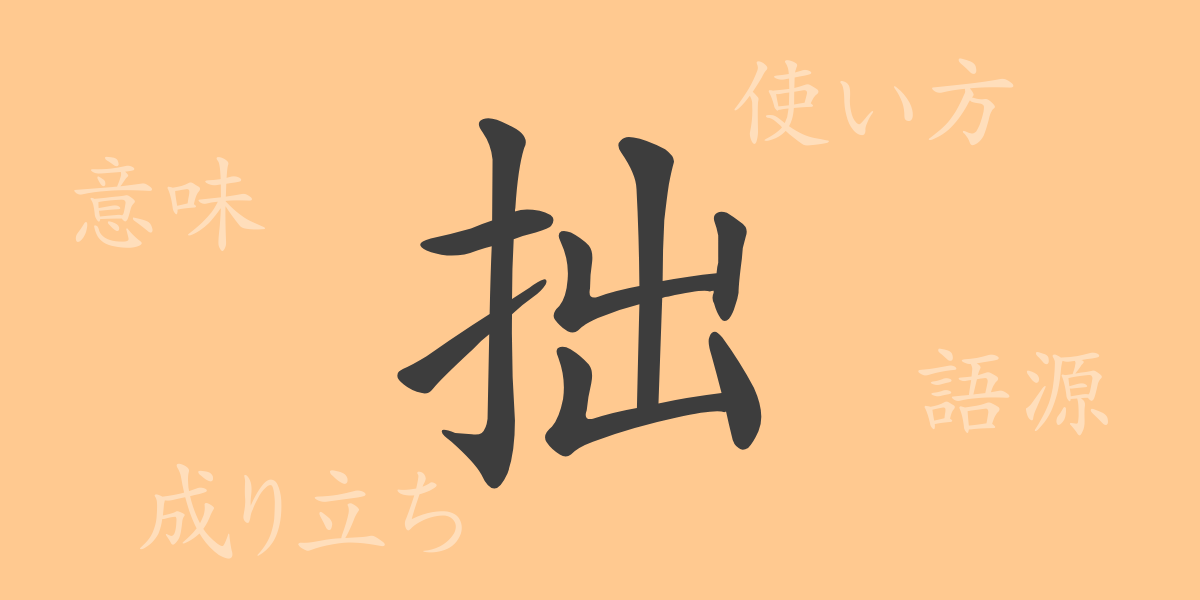The richness of the Japanese language is often captured through the use of kanji, each bearing deep meanings and historical significance. One such kanji, “拙” (せつ), while not frequently used, holds a special place as a symbol of Japanese culture and spirituality. This article explores the origins, meanings, and usage of “拙”, shedding light on how it resonates within the Japanese psyche through various idioms and phrases.
Origins of 拙 (せつ)
The kanji “拙” originated in ancient China, combining the radical for hand “扌” (てへん) with the character “出” representing emergence. Initially symbolizing the clumsiness or ineptitude of hands emerging in action, its meaning evolved to express modesty or an underestimation of one’s abilities over time.
Meaning and Usage of 拙
“拙” typically describes clumsiness or lack of skill, but it is also used to express modesty in describing one’s own abilities, particularly in Japan. It’s often used positively in arts like literature and calligraphy, where it can denote a unique or personal flair. Phrases like “拙い” (clumsy or unskillful) reflect cultural humility, a valued trait in Japanese society.
Readings, Stroke Count, and Radical of 拙
The kanji “拙” is simple yet expressive in its structure:
- Readings: The on’yomi (Sino-Japanese reading) is “セツ” (setsu), and the kun’yomi (native Japanese reading) is “つたない” (clumsy).
- Stroke Count: “拙” consists of 8 strokes.
- Radical: The radical is 扌(てへん), related to the hand, indicating actions or characteristics of the hands.
Phrases and Idioms Using 拙
Several idioms and phrases incorporate “拙”, reflecting its nuanced meanings:
- 拙速 (せっそく): Acting hastily, often implying a lack of careful consideration.
- 拙者 (せっしゃ): A humble way of referring to oneself, historically used by samurai.
- 拙劣 (せつれつ): Describing something or someone as significantly inferior in skill or quality.
- 拙著 (せっちょ): A humble term for one’s own written works or publications.
- 拙守 (せっしゅ): A modest way of referring to one’s own home.
Conclusion on 拙
The kanji “拙” embodies humility and self-effacement, traits highly esteemed in Japanese culture. Its use extends beyond mere self-criticism, enriching the language with expressions of modesty and respect. Understanding “拙” offers insight into the Japanese ethos, where valuing one’s imperfections is seen as a virtue, adding depth to the communicative landscape of the Japanese language.

























